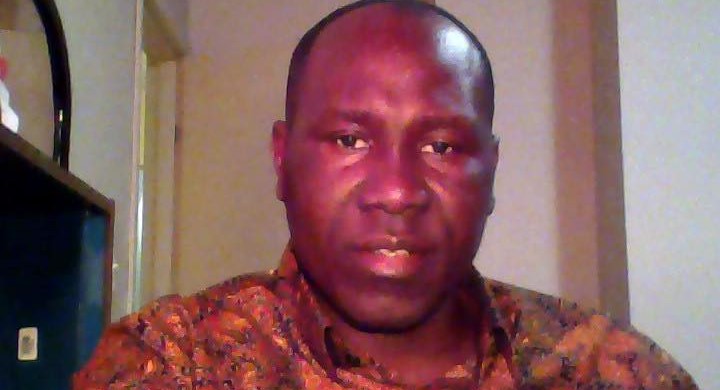One can conclude that the leaders of South Sudan are appointed to divide and loot national resources that should be used to improve the welfare of the citizens, and spare them the indignity of depending on humanitarian compassion.
The journey of the former liberators to the realities of corruption, resources mismanagement and tribal governance, continues to test the nation’s character and ability to resolve conflicts that divide the people. The leaders hoodwinked South Sudanese with beautiful slogans of freedom, justice and equality, before veering off to tyranny and ethnic identity governance.
For many decades, the people of South Sudan struggled and made sacrifices against racial and religious marginalization by the then Sudan government. They envisioned an inclusive society, but the hope soon became a nightmare of ethnic divisions, politics of exclusion, corruption, and lack of strategy to transform South Sudan. Millions of South Sudanese lives have been directly or indirectly destroyed by the government that they supported during the liberation struggle.
As soon as the former freedom fighters assumed positions of power in the newborn nation, the lines between national expectations and tribal allegiance began to be fogy. The spirit of liberation that once united marginalized communities was overshadowed by sectarian interests. They divided South Sudanese, promoted police state and destroyed peaceful coexistence by abusing power to humiliate their political opponents and target citizens based on ethnic classifications.
This shift to tribal governance affects the social fabric of the South Sudanese society. Government institutions that are supposed to serve national interests serve only tribal interests and selective groups that weaken the foundation of nation building. Famous slogans of liberation struggle like; “New Sudan vision”, that promised unity, justice, equality and prosperity, have become symbols of disgrace. It is a sad reality that appointments, resource allocation, and even the administration of justice and key government positions are not pegged on merit or national interest, but on the dynamics of tribal affiliation. After independence, expectations were high to build a South Sudan that reflects democratic governance in which freedom, equality, justice, the rule of law, respect for human rights, and social and economic development should be the core values.
The ethnic identity government has created a huge distrust, political instability, insecurity, internal displacements and civil wars. The tribal elites capture the state and target other ethnic groups as revenge for their historical grievances. The cartels in Juba betray the sacrifices of the South Sudanese that died for the ideals that united in the liberation from political marginalization.
To make South Sudan an inclusive and better place, political leaders should reconsider dialogue and reconciliation. Genuine dialogue, reconciliation, inclusive governance and the strengthening of national identity are not mere expectations; they are necessities for survival and progress. Only by moving beyond the shadows of tribalism can South Sudan fulfill its original promises to be a nation where freedom is not a privilege, but the right of all citizens. Former liberators have betrayed expectations by leading South Sudanese into politics of ethnic identity, which has destroyed the social fabric of the society.
The rise of ethnic governance in South Sudan, shaped by the very freedom fighters once celebrated for their resilience, is not a mere rhetoric. In the aftermath of independence, the aspiration was to forge national unity, equality, and justice for national healing and reconciliation. Yet the liberation promise has been steadily collapsed by a descent into politics of ethnic identity.
The transition from the ideals of the liberation struggle was meant to create a new era. However, as former freedom fighters absorbed power, the boundaries between national interest and tribal allegiance faded. The government institutions became battlegrounds for ethnic dominance and corruption. Political appointments, resource allocation, and the government key positions have been increasingly aligned with ethnic affiliations, thus eroding the very ideals for which many sacrificed and died. The government is now associated with the trial elites, who have been accused of abusing state power to police and punish political opponents along ethnic lines.
The leadership in Juba encourages the targeting of some ethnic groups deemed to be enemies of the state for retribution for perceived historical grievances. The abuse of power to humiliate political opponents and the identification of citizens through the ethnic lenses is a betrayal of the liberation ideals. Such targeting is not merely a political misstep, but also creates wounds that continue to destroy the social fabric of the South Sudanese society and undermines peaceful coexistence, sows the seeds of mistrust and divisions.
As tribal elites capture the state power, they perpetuate cycles of violence, insecurity and instability and perpetrate the ethnic divides that once stood against reforms. The danger of ethicized governance has a huge consequence of creating violence, instability and insecurity that threatens state building and risks national fragmentation. These ethnic elites capture the state palace and create slogans of “one people and one nation”, unity and equality as emblems of disappointment and disgrace.
For South Sudan to eradicate ethnic politics that capture the state, it must consider radical reform of the government institutions, detach security sectors from politics, enact permanent constitution, and enforce law and order. Genuine reconciliation can only be achieved by dismantling tribal loyalties and embracing an inclusive national identity.
The distribution of power, resource management and the allocation of positions and governance institutions must be guided by merit that promotes the common good. Until the government of South Sudan recommits to protecting all citizens, lasting peace and prosperity will remain a dream. Only by dismantling the structures of ethnic politics and fostering genuine inclusion will South Sudanese have the chance to pursue opportunities without privilege of an uncle’s recommendations.
The writer, Philemon Daud Tom, is the SPLM-IO Provincial Coordinator of Ontario, Canada (philemondaud84@gmail.com)
The views expressed in ‘opinion’ articles published by Radio Tamazuj are solely those of the writer. The veracity of any claims made is the responsibility of the author, not Radio Tamazuj.




